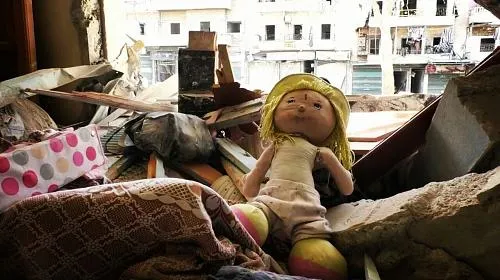CARE continues to be horrified by the situation in Aleppo. Our team is receiving urgent pleas from our humanitarian colleagues and partners in Syrian NGOs to receive assistance and evacuate the citizens of East Aleppo. We are distressed to not be in a position to respond to these desperate pleas and call on the parties to stop this humanitarian catastrophe.
We are also deeply concerned by the continued, well-evidenced reports of executions, arrests, torture and disappearance of civilians. A recent UN report mentioned at least 82 civilians – including 11 women and 13 children – killed in Eastern Aleppo. The gross violations of humanitarian law – as indicated by the complete failure to discriminate between humanitarians, civilians and combatants – must stop.
This situation in Aleppo is a dramatic reflection of the failure of the international community. Not only are major powers watching this massacre unfold unwilling to take action to stop it, but Russia, a permanent Security Council member, is deeply complicit in violations.
CARE continues to call:
- For an immediate cessation of hostilities and an urgent evacuation of civilians from East Aleppo.
- For an immediate stop to the violations of international law. All parties to the conflict must hear the pleas of the international community and respect existing UN Security Council resolutions.
- All parties to the conflict, and in particular the governments of Syria and Russia must be held accountable for any and all crimes committed during the course of the conflict.
- All UN member states must build upon the recent general assembly resolution to place high level diplomatic pressure on parties to the conflict to move toward a negotiated solution. This is critical as the conflict approaches its sixth year.
Media contacts
Holly Frew, Emergency Communications Manager, CARE USA, hfrew@care.org, +1 770 842 6188
About CARE
Founded in 1945, CARE is a leading humanitarian organization fighting global poverty. CARE has more than six decades of experience helping people prepare for disasters, providing lifesaving assistance when a crisis hits, and helping communities recover after the emergency has passed. CARE places special focus on women and children, who are often disproportionately affected by disasters. To learn more, visit www.care.org.

